Q76: Cardiology: PLAB 1 /UK(MLA)/AKT Exam style question
Today we will discuss another Q76 cardiology PLAB 1/ UKMLA exam question. This is a common topic that has appeared in the past PLAB 1 exam.
A 72-year-old retired school teacher presents to the clinic complaining of episodes of dizziness and one episode of syncope while climbing a flight of stairs at his home. He describes associated shortness of breath and a mild, central chest discomfort on moderate exertion. He denies any palpitations or nocturnal symptoms. On examination, you notice that his pulse is regular, blood pressure is 115/75 mmHg, and respiratory rate is 18 breaths per minute. His jugular venous pressure is not elevated. On cardiac auscultation, you notice an ejection systolic murmur best heard in the aortic area, radiating to the carotids. Given his clinical presentation, what would be the SINGLE most definitive investigation to confirm the diagnosis?
A. ECG
B. Echocardiogram
C. Ambulatory blood pressure monitoring
D. Holter ECG
E. CT head
Answer is given below
Past PLAB 1 candidates reviews about MedRevisions with results
Follow us on telegram for more free questions
PLAB or MLA exam Study groups: Find the 10% discount referral links here
Articles with important insight:
Important update to the PLAB exam: Is the PLAB exam based on the MLA content map from August 2024 onward? Find out more about the change and how to prepare for it here.
Evolving Nature of PLAB 1 Exam Questions: Is the exam getting tougher? A Closer Look with examples
What Past PLAB 1 candidates say about us (with exam results)
Answer: B. Echocardiogram.
Explanation:
This patient's presentation is highly suggestive of Aortic Stenosis (AS):
- Symptoms: The combination of exertional dyspnea, chest discomfort, and syncope in an elderly patient is classic for symptomatic AS.
- Physical Examination: The described ejection systolic murmur that is best heard in the aortic area and radiates to the carotids is the characteristic murmur of AS.
Echocardiogram (Choice B) is the gold standard investigation to diagnose and assess the severity of AS. It allows visualization of the aortic valve, assessment of the valve's anatomy, calculation of the valve area, and determination of the transvalvular gradient. Echocardiography can also provide valuable information about left ventricular function, which is crucial in determining the timing of aortic valve replacement in these patients.
Let's analyze the other options:
- ECG (Choice A) can show left ventricular hypertrophy or other non-specific changes in the context of AS, but it is not diagnostic for the condition.
- Ambulatory blood pressure monitoring (Choice C) would be more relevant if we were assessing hypertension or its management, not AS.
- Holter ECG (Choice D) is essential for evaluating arrhythmias, not valve pathologies. While patients with AS can have arrhythmias, the primary diagnosis of AS is not made with a Holter monitor.
- CT head (Choice E) is not relevant to this presentation. It would be indicated in the workup of neurological symptoms not explained by other causes.
This is a high-yield exam PLAB 1/ UKMLA question-style question. At MedRevisions, We provide questions and not only explain the correct answer, we also explain the wrong answer so you will have a comprehensive understanding of the concepts that is commonly tested in the exam. On top of that, we also provide you PLAB 1 / UKMLA exam curated notes with no additional cost.
To discuss to more PLAB or UK-MLA exam questions, Join: PLAB 1 /UKMLA exam study group
At MedRevisions, we strive hard to provide the most up-to-date content available for PLAB Part 1. We constantly add exam-style questions derived from the most recent exam and also update the content to align with the latest NICE/CKS guidelines to ensure doctors pass PLAB Part 1 or UKMLA exam with ease in ONE attempt.
Past PLAB 1 candidates reviews about MedRevisions
How to use MedRevisions effectively for the PLAB 1 exam/ UKMLA exam preparation
Previous PLAB 1 or UKMLA exam guideline update
All MedRevisions recent updates
References:
What we provide:
✅ 4800+ exam style questions
✅ Perfectly tailored exam style notes
✅ 30+ exam mocks
✅ Spaced repetition learning tool
Free PLAB 1 / UKMLA questions
Our Updates
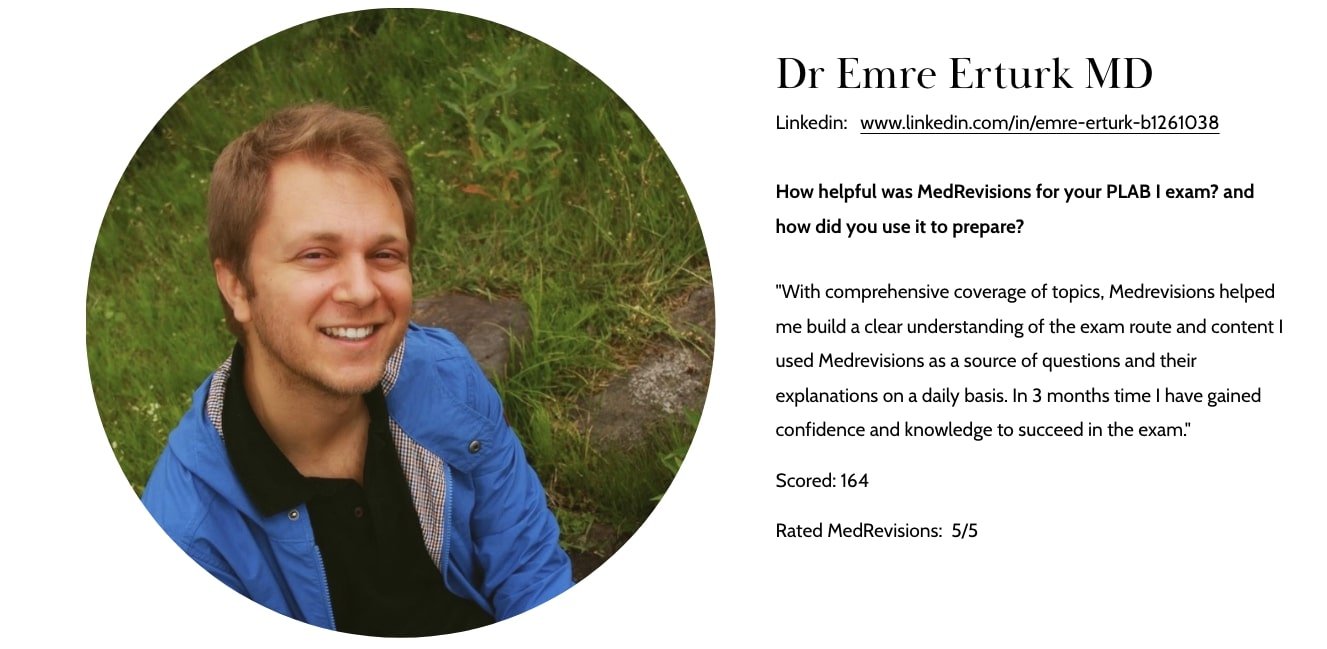
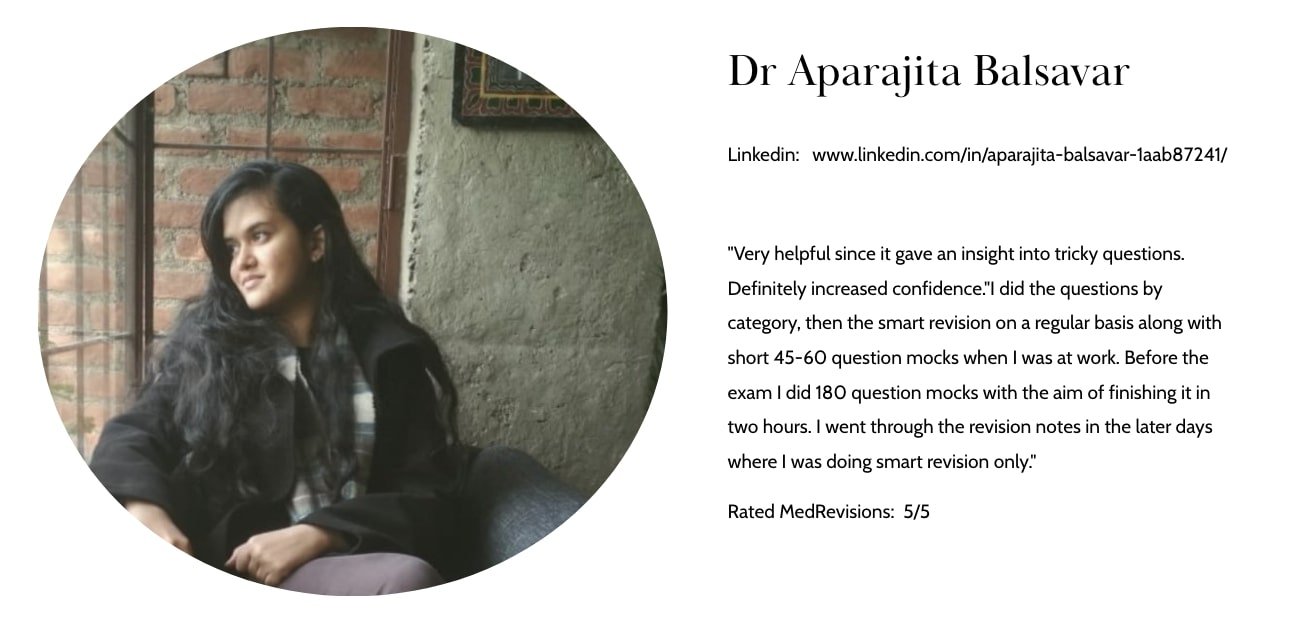
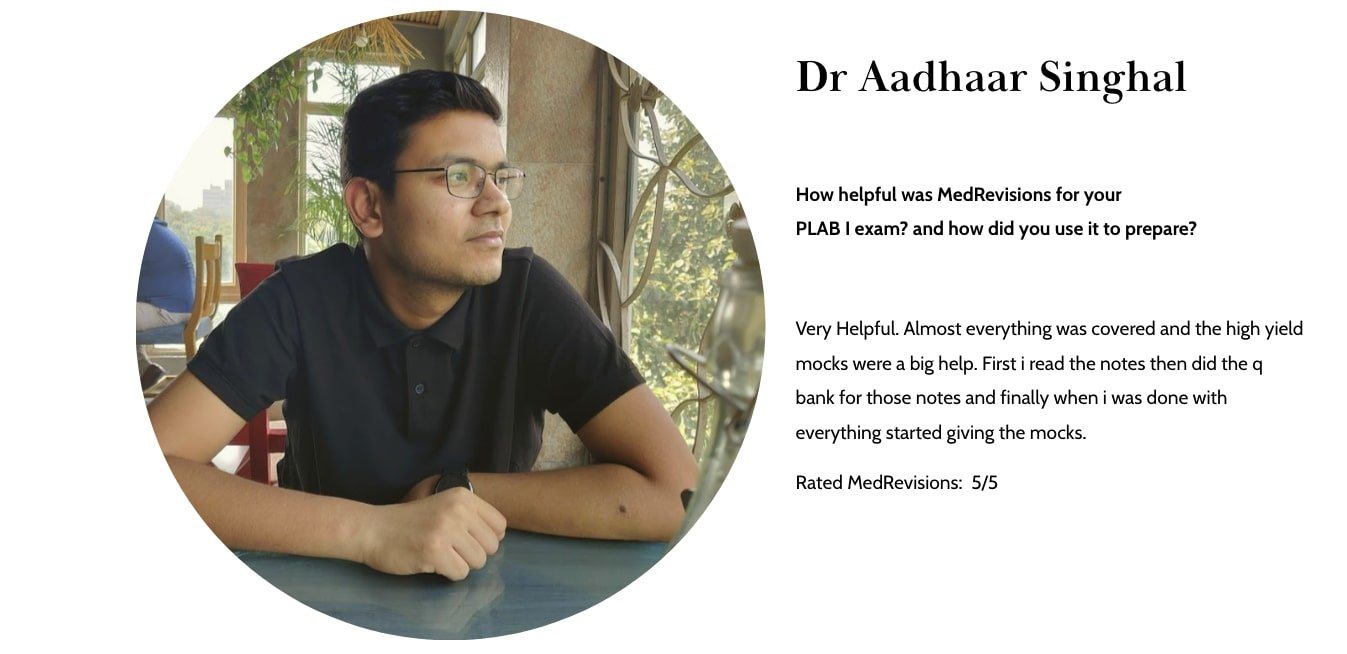
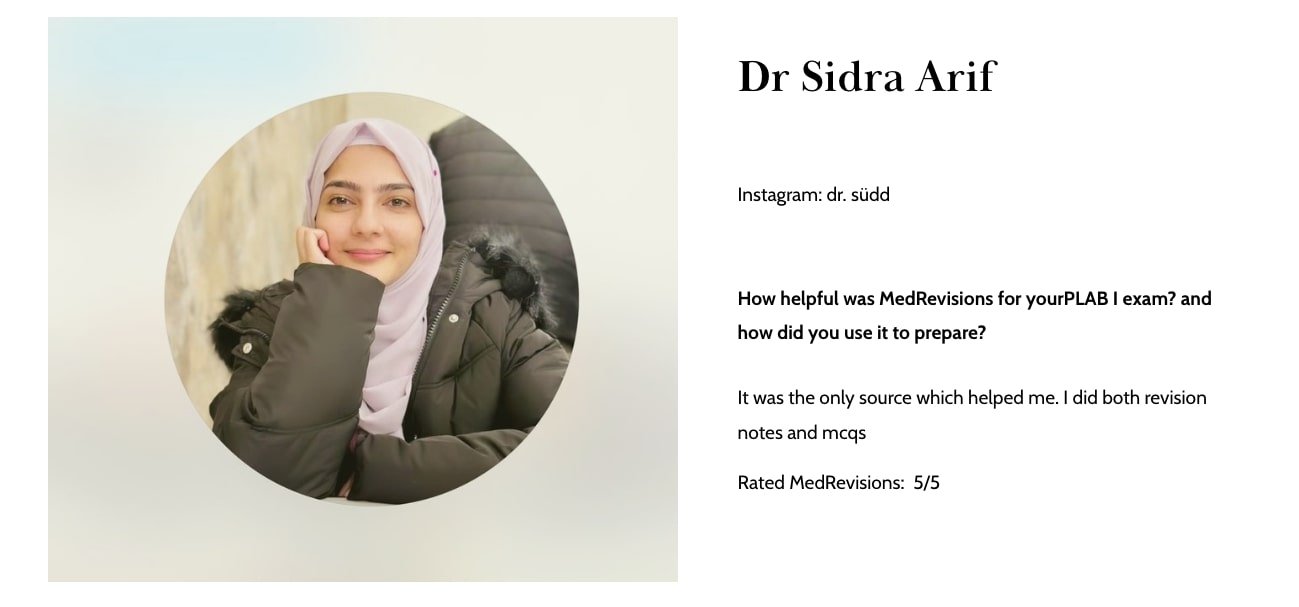





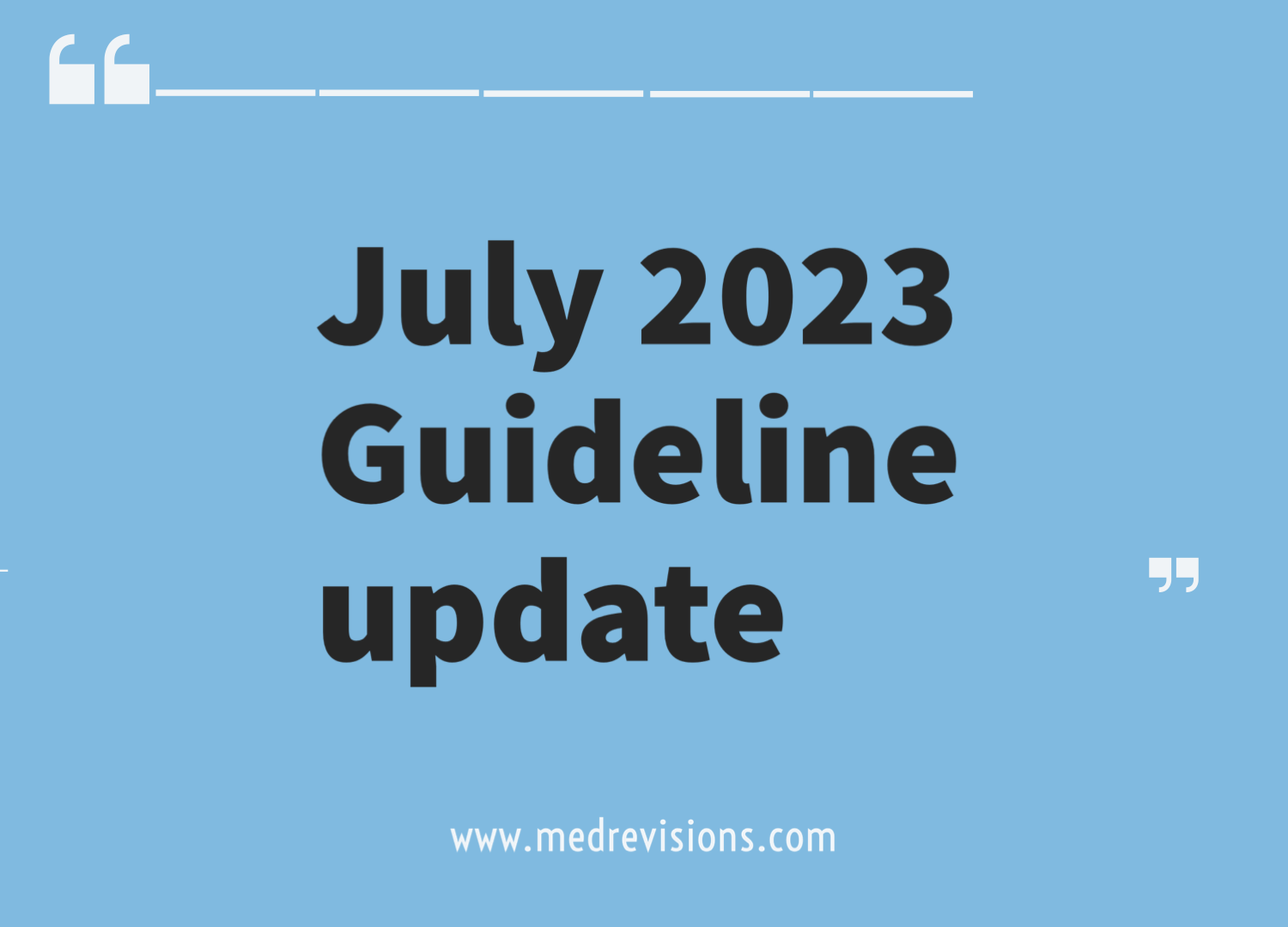




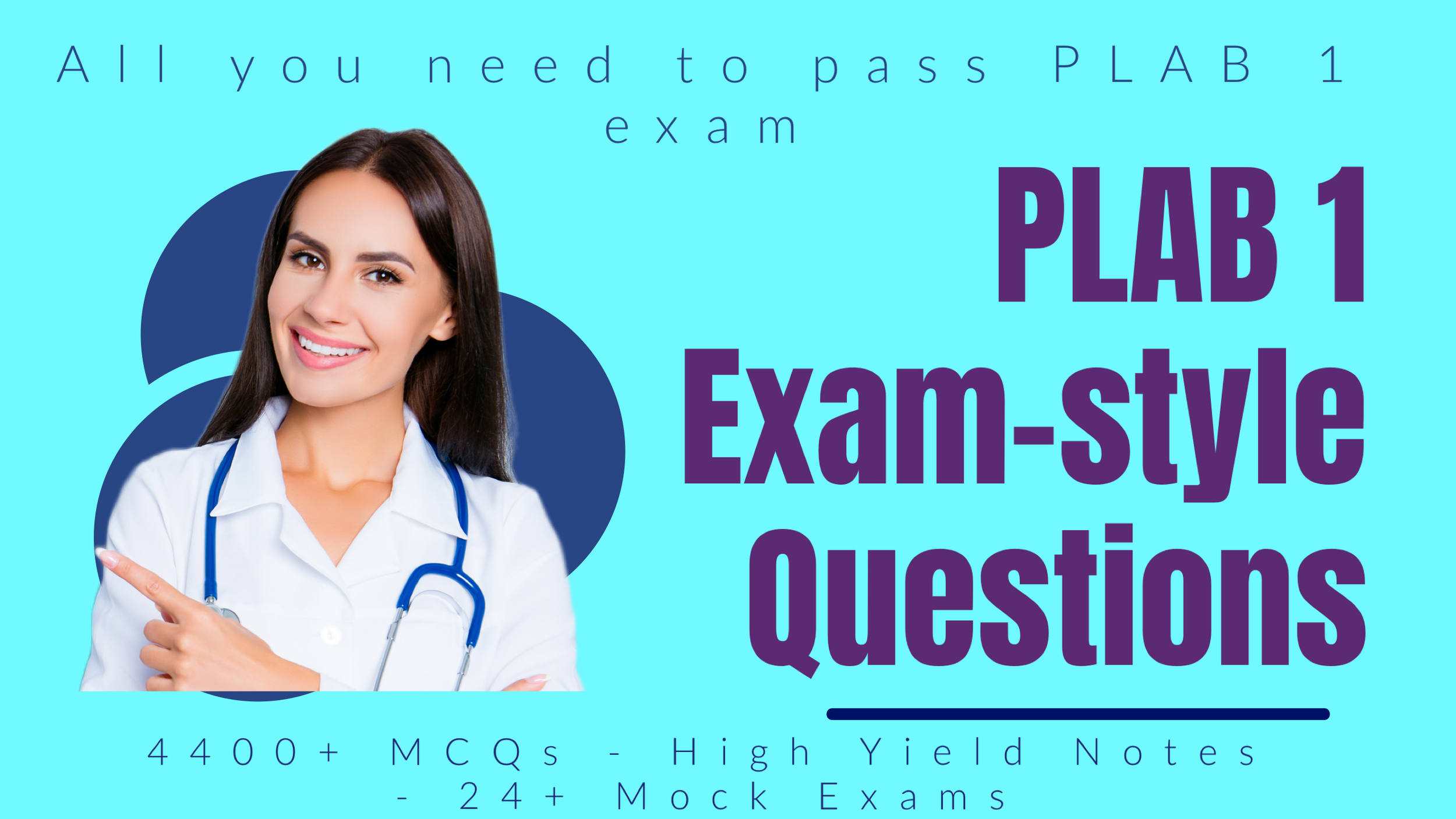
Q76: Cardiology PLAB 1 /UK(MLA)/AKT Exam style question